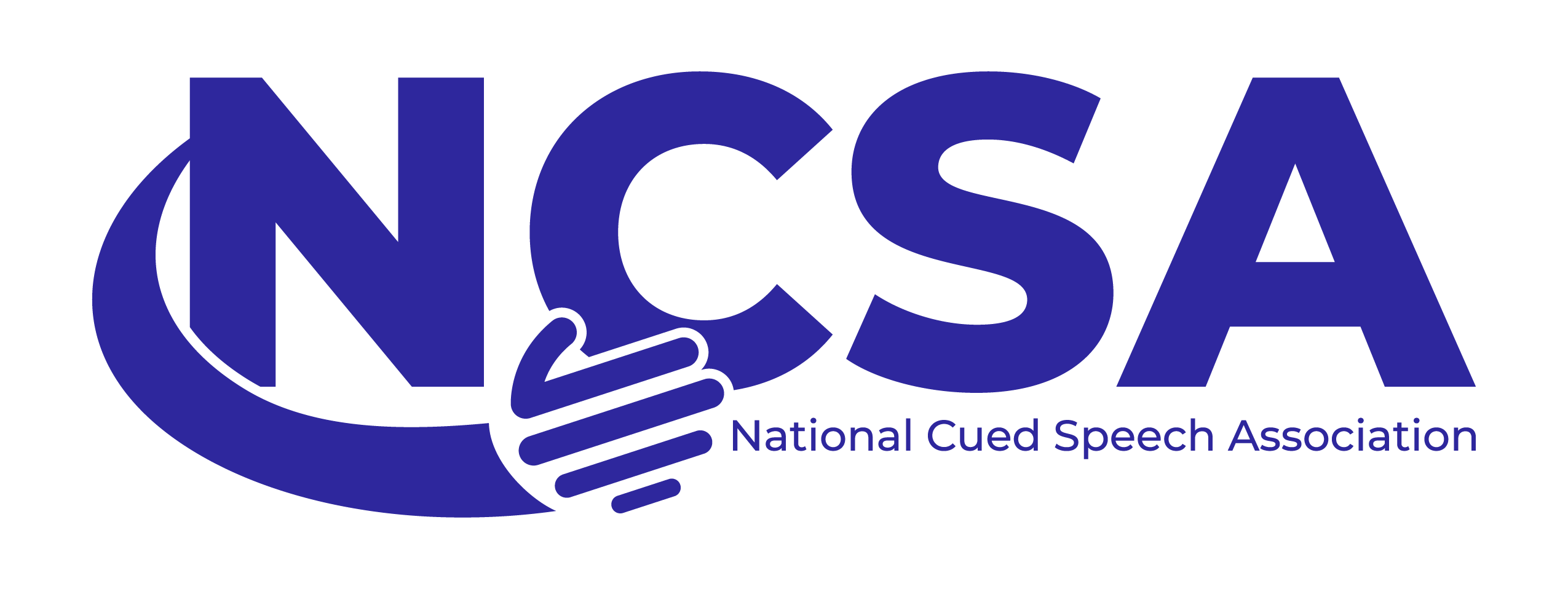The NCSA and the cuemmunity offer opportunities for professional development in cueing and advocacy. Cuers, teachers of the deaf, and other professionals in fields related to deafness are encouraged to do any of the following:
- Participate in the CLEAR program.
- Take intermediate and/or advanced level cueing classes at camps or workshops.
- Attend presentations and workshops related to Cued Speech.
- Participate on the board of the NCSA or one of its affiliates.
- Take cue tutoring through Cue College.
- Contact Language Matters, Inc. for cued language transliterator training: Lauren@LanguageMattersInc.com.
- Take expressive cueing evaluations offered by InsCert, including the Word-Level Assessment and the Sentence-Level Assessment.
- Work with your Regional Representative or camp/workshop directors to coordinate continuing education credits through professional organizations or affiliated post-secondary institutions.
Educational Video Series
Topic: Using Cued Speech In An English/ASL Bilingual Program For Deaf Children
Presenter: Angela Kuhn, Principal of the Illinois School for the Deaf
Angela Kuhn serves as a principal in both the elementary and the junior/senior high programs at the Illinois School for the Deaf. She is currently in her 17th year as a principal at the school and her 25th year in the field of deaf education. Mrs. Kuhn has also worked as an Early Intervention Developmental Therapist for families of deaf children, a high school reading and health teacher, and as an educator for deaf students in a mainstream setting. In addition, Mrs. Kuhn serves as the director of ISD’s annual week-long Institute for Parents of Preschool Children Who are Deaf or Hard of Hearing. She graduated from MacMurray College with a Bachelor’s degree in Deaf Education in 1998. She then earned her Master’s degree from Lewis University in Educational Administration in 2005. Mrs. Kuhn has consistently supported ISD’s movement to incorporate Cued American English into its bilingual program for deaf students from across the state of Illinois over the past eleven years. She believes that the use of both ASL and Cued Speech in bilingual programs for deaf/hard of hearing students provides those students with complete visual access to acquire both languages naturally. In addition, the use of ASL and Cued Speech helps promote the separation of the two languages, as prescribed in bilingual educational programming.
